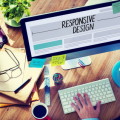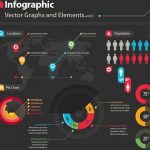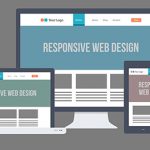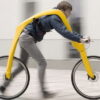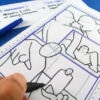7 Things To Ask Before You Choose a Newbie Web Designer For Your Project
As we write, the web is teeming with new businesses. The potential the Internet has for businesses of all sizes is evident. It’s a reality. It’s something that almost all-new business embrace by default.
At the heart of the exciting media that the Internet is, there lies the humble web designer. If you are in this business, you are likely to be looking for talent from a global talent pool. But who says talent and skill is all that you have to look at? The recruiting process a designer isn’t that different recruiting anyone else, but there are at least 7 specific things you’d need to look into:
1. What’s the Learning Quotient?
If there’s one thing web designers need, it’s an ability to learn quickly, adapt to ever-changing web design trends, an ability to work with multiple technologies, and do more than what is required of them.
Most other professionals like teaching and accounting are less focused on immediate, quick, and mandatory learning. For web design, learning is at the heart of the profession. You’d either learn or you go extinct.
How does your candidate cope with this inherent need for learning? What’s their learning quotient?
2. Ask the “Not so Obvious” Questions
Step away from the regular, “tell me about yourself”, “Explain your strengths and weaknesses”, and “describe your work in your previous company”.
They say that you get what you ask for. What you are asking for in these situations is for a steam of made-up, prepared, and superficial answers. Obviously, they aren’t going to tell you about the fistfight they had with the copywriters or the fact that they just custom-equipped a template to deliver on a rushed deadline.
Ask them about their habits, what they read, how they think, and more. Find out how they network, check their social profiles to glean insights on who they are, etc.
3. The Portfolio is Mandatory
If you have to ask your potential designer hire just one thing, ask for the portfolio. A designers’ portfolio tells you a lot about who your designer really is. Once you see the portfolio, ask your designers about their reasons for doing things the way they did, their reasons for picking one technology over the other, how they collaborated with others (programmers, copywriters, etc.) to complete the project.
You are essentially digging into the mind of your designer recruit. Plus, you are also able to see how their work with others, how they make their decisions, and get insights on their work habits. Plus, if they aren’t on Dribble, Behance, or have a portfolio site of their own, rule them out.
4. Looking for Dreaming Achiever?
Designers have a dual role – they have to envision and they have to bring visions to reality.
On a simplistic level, it could mean picking on a client to figure out what the client wants and then setting out to bring solutions to the table. On a far more grand level, it could be about discerning trends, looking into the future, and working to meet demands envisioned for the future.
All things said, you don’t want another drone working on your web design project (because there are drones already). You need someone who not only envisions the future of web design but also executes.
5. Ask for Results
Design is thought of as a creative endeavor. It is, and it isn’t. It’s creative as far as the aesthetic appeal is concerned. It’s not when you take the “results” aspect of design for business.
Designing for results is a reality already when it comes to products, for instance. There was a time when web design was “creative”. Today, it’s “result oriented”. When hiring designers, ask them how they solved problems clients were facing. What did they do to improve UX/UI experience, or boost conversions?
6. Person Minus the Ego
Many designers let their egos interfere with their own success, according to Aidan Huang of Onextrapixel.com. We are humans after all. When we spend tons of time perfecting our art and getting better at what we do, we are led to believe that our ideas and our work is better than everyone else in the same pit.
Often, it’s not the truth. You could be wrong. Nothing shouts louder than a designer’s ego. Trouble is, that ego affects your website (or those that you develop for your clients). Check whether your potential designers put their ego at the forefront. If they do, you are looking at a losing deal. For a new web designer, the mission is simple: build websites that work. Nothing else should come in between. Not even employers, pesky bosses, and career-truncating ego.
7. Got the Attitude, Charlie?
Mark Murphy, the author of Hiring for Attitude, reveals startling facts in an interview with Dan Schawbel of forbes.com. Over 46% of new hires (among 20,000 who were a part of a research study) failed in 18 months. At least 89% of the failure instances were attributed to “attitudinal reasons” and only 11% of the instances accounted for lack of skills.
Often, what makes sense is often the only thing that’s missing in a workflow or in a business. Almost every business book worth the pages it’s printed on harps about the importance for hiring for attitude, and not skills. Yet, almost every hiring process starts with screening candidates for skills.
Given that your website is going to be at the forefront of your business, a lot must go into your website. The new web design recruit is likely to have “skills” anyway – be it HTML 5, CSS3, or beyond.
So that’s not what you should be looking for (since that’s to be taken for granted). Look for attitude: what does your new newbie designers do when you strip them the niceties of Adobe Suite of products or any fancy piece of software? Will they fire up a notepad and start coding or will they spend 3 days chasing you for these tools?
Think about it. How your designers react to every day problems, how they fit in into the larger scheme of things, and how they think and act have a lot to do with the work output goes a long way to show what mettle your potential designer recruit is made of.
So, how do you hire a web designer? What’s your story?
Tags: web design resources








